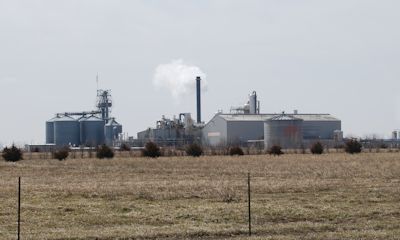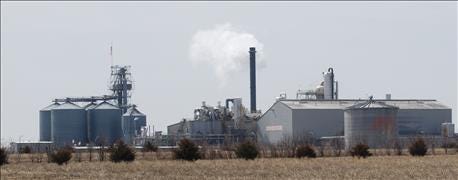
Last week, U.S. subsidiaries of Spanish renewable-energy company Abengoa SA filed for chapter 11 bankruptcy protection. The filing came after several organizations, including the Farmers Cooperative Association, Gavilon Grain, LLC, The Andersons, Inc., and Central Valley Ag filed chapter 7 bankruptcy against Abengoa. Abengoa Bioenergy U.S. Holding LLC reported assets and debts each ranging from $1 billion to $10 billion in its chapter 11 petition, filed with the U.S. Bankruptcy Court in St. Louis, Missouri.

STARK REMINDER: Todd Sneller, Nebraska Ethanol Board administrator says the filing of chapter 11 and potential sale of these assets, including ethanol plants like the Abengoa locations near York and Ravenna, brings to light the positive impact the ethanol industry has on the community.
Under chapter 11, Abengoa will have a specified amount of time to develop a bankruptcy reorganization plan and negotiate with creditors to come to an agreement to restructure debt. If the creditors disapprove of the plan, the company then goes into chapter 7, which involves the liquidation of assets to make payments to the creditors.
In a press statement issued in February, Abengoa Bioenergy President and CEO Antonio Vallespir said the filing provides an "opportunity for a coordinated and supervised reorganization or sale process."
Todd Sneller, Nebraska Ethanol Board administrator says the filing of chapter 11 and potential sale of these assets, including ethanol plants like the Abengoa locations near York and Ravenna, brings to light the positive impact the ethanol industry has on the community.
"If ever people start to take for granted the economic advantages of ethanol production, this is a stark reminder that there's a whole host of positive economic activity generated by the plants," Sneller says. "In the absence of ethanol production we quickly see cattle producers missing the source of distillers feed, farmers miss that grain demand – that's a significant requirement on an everyday basis to get grain moved to that facility and it offers a terrific local market, and the community misses the economic impact of those jobs."
Sneller notes in similar cases where a parent company has filed chapter 11, another company has typically purchased the ethanol plant and continued to operate it.
"We also know a couple assets Abengoa has in other states are not right now included in that bankruptcy. We will probably see a few companies looking at those assets," he says. "As long as the plants are being operated, local farmers, cattle producers, and communities, still see that economic benefit. If they're operated by an interim operator, that's still good from the perspective of people in the community. One scenario we're hearing discussed is the number of options for how those plants might be used if not immediately acquired."
Despite recent declines in commodity prices, the filing of chapter 11 by Abengoa is not indicative of the ethanol industry as a whole, Sneller says.
"This is a challenging time across the ethanol sector, but plants are making a little profit, even though margins are tight," he says. "They've learned it's important to manage debt and they've done that. While there are challenges, they now are pretty seasoned and have the experience to help address those challenges going forward. We will probably see an uptick here soon in demand and pricing. This is typically not a long-term period of severely depressed prices."
About the Author(s)
You May Also Like






